Author: Prabhu Pingali

Hybrid Mustard and Biotechnology: Pathways for Doubling Farmers’ Incomes and Nutritional Security
Abstract The government’s decision to move ahead on the much-delayed genetically modified mustard developed by the University of Delhi signifies a turnaround and bodes well for the country’s food system. Numerous tests over the last 20 years prove its safety for food, feed, and the...

Making Meat and Milk from Plants: A Review of Plant-Based Food for Human and Planetary Health
Abstract Interest in alternative protein sources to substitute for animal source protein-rich foods has emerged alongside calls for sustainable food systems to meet protein demands as the global population grows towards a projected 9.8 billion people by 2050. Food companies are capitalizing on sustainable diet...
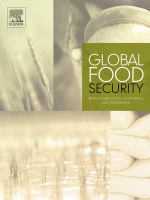
Can We Agree on a Food Loss and Waste Definition? An Assessment of Definitional Elements for a Globally Applicable Framework
Abstract Recent strategies for achieving sustainable food systems have called for reducing food loss and waste (FLW), most notably Sustainable Development Goal (SDG) target 12.3. This review aims to compare FLW definitions that are relevant to SDG target 12.3 and opportunities to harmonize the FLW definition. Using the FAO...
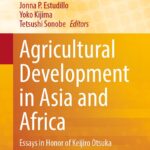
Are the Lessons from the Green Revolution Relevant for Agricultural Growth and Food Security in the Twenty-First Century?
Abstract The Green Revolution had profound positive impacts on human welfare and economic development across the developing world. However, its global reach was limited by agroclimatic, infrastructural, social, and political constraints. Regional disparities in poverty reduction, intra-societal inequities, and gender differences in the distribution of...
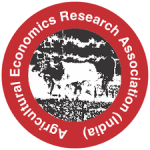
Nutrition-Sensitive Food Systems and Biofortified Crops
Abstract The realization that economic growth is a necessary but insufficient condition for improving the nutritional status has led to a paradigm shift in addressing malnutrition through nutrition-sensitive development. Biofortification is one such nutrition-sensitive food system intervention designed to supply crucial micronutrients through staple diets...
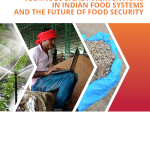
Technological Interventions in Indian Food Systems and the Future of Food Security
Technological Interventions in Indian Food Systems and the Future of Food Security is available for download in PDF format. With India on track to become the world’s most populous country by 2030, agricultural technology will play a vital role in ensuring that the country meets...
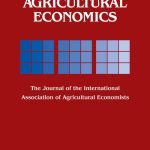
Food Systems Transformation in Asia – A Brief Economic History
Abstract Asia’s food systems have undergone rapid economic and socio-cultural transformations in the past 60 years. During the period, almost all the countries in the region eradicated famines and achieved food self-sufficiency and heterogeneous levels of poverty reduction. Food system transformation in Asian countries has...
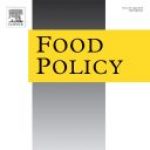
Aggregation Models and Small Farm Commercialization – A Scoping Review of the Global Literature
Abstract Aggregation models where small farms jointly access credit, inputs, information, and product markets are not new to global agricultural systems. For over a century, agricultural cooperatives worldwide have tried rectifying small farm disadvantages in market access. In the last two decades, newer aggregation models...

Food Loss of Perishable Produce from Farm to Retail: Evidence from Tomato Supply Chains in South India
Abstract Background Reducing food loss and waste (FLW) may narrow gaps between fruit and vegetable production and recommended intake. However, FLW estimates are inconsistent due to varying estimation methods. Objectives Using multiple estimation approaches, we examined the extent and determinants of FLW along tomato supply...

Hunger and Environmental Goals for Asia: Synergies and Trade-offs Among the SDGs
Abstract Rapid progress in hunger reduction in Asia has come at the cost of environmental degradation, while pursuing environmental conservation goals risk slowing further progress on hunger. Operationalizing the Sustainable Development Goals (SDGs) shows us the complexity of achieving multiple societal goals simultaneously. The lack of coordination across...

